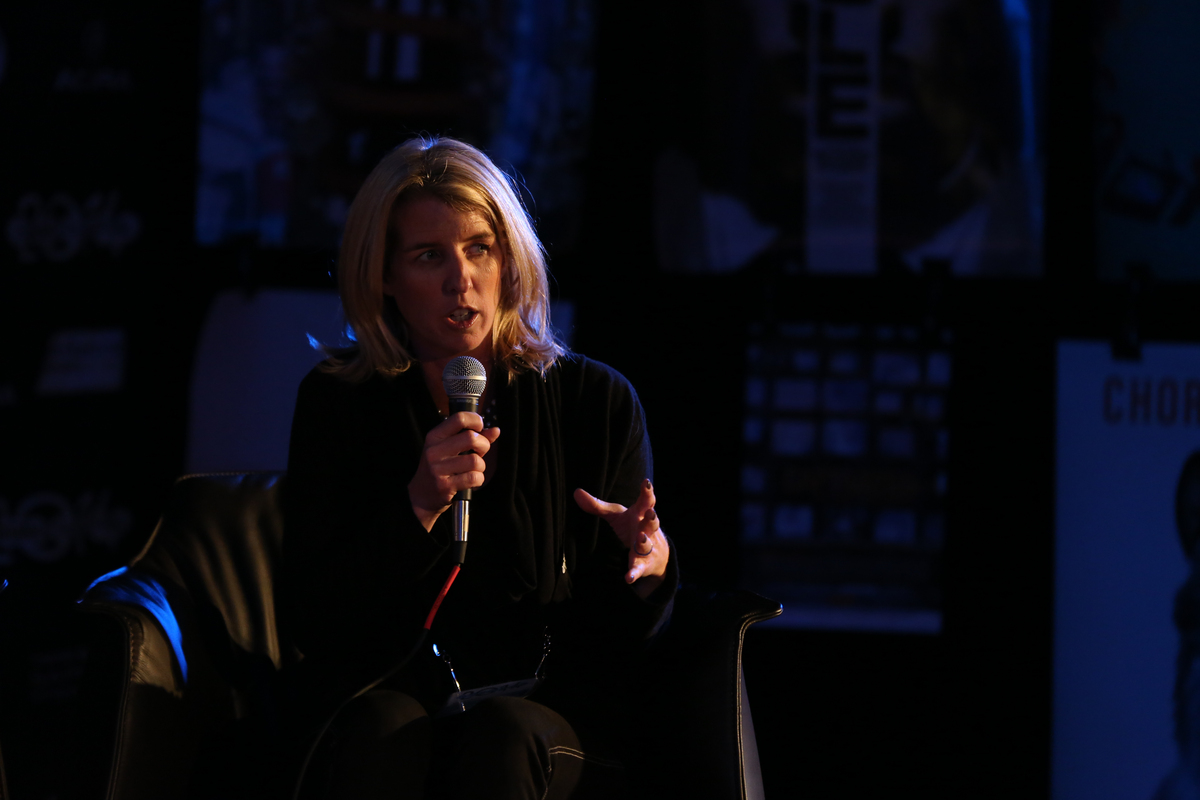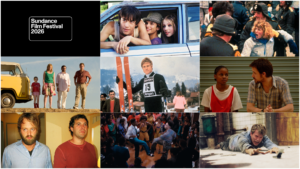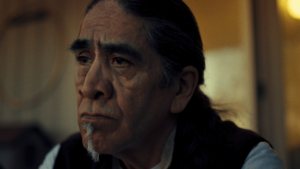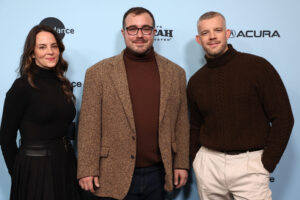Director Rory Kennedy speaks during an event at the 2014 Sundance Film Festival.
By Vanessa Zimmer
Take comfort that Rory Kennedy is one of those people who goes straight to the source when she sets out to make a documentary. After all, “documentary” contains that precise word “document” for a reason.
Kennedy values first-person accounts in telling true stories — far more than the judgments and perspectives of historians and experts outside the storyline. “The original source,” Kennedy says. “That is hugely important to me, first and foremost.”
That’s why she sought out the South Vietnamese helicopter pilots who were flying their families out of the country in the Oscar-nominated Last Days of Vietnam. That’s why she went to the wife of a dead pilot who was being blamed for the crash of a Boeing airliner when she was researching the crashes of two Boeing 737 MAX crafts within a five-month period in 2018-19. That’s why she eschewed historians and famous friends when profiling her mother in Ethel, opting instead to let the woman herself and her 11 children tell the story.
Those insights came to the fore in a Sundance Collab class: Rory Kennedy on Crafting Documentary Films That Explore the Urgent Social Issues of Our Time. A filmmaker with more than 30 documentaries to her name — and the yet-to-be-born child of Bobby and Ethel Kennedy when the candidate for the Democratic presidential nomination was assassinated in 1968 — Kennedy allows the human drama of each story to drive the narrative.
But not at the expense of truth. Kennedy follows the age-old journalism code to have at least two sources for every fact or assertion. Everything must be fact-checked; everything must be 100 percent true. “I think it’s always important to be methodical and thorough in your research on any film,” she says. “I take that responsibility very seriously.”
Access to archival footage, logically, is critical — particularly to footage that has been rarely, or never before, seen. Some directors, says Kennedy, leave archival footage to later in the production process, but she prefers to start early, so that those she interviews can help her document and enhance it.
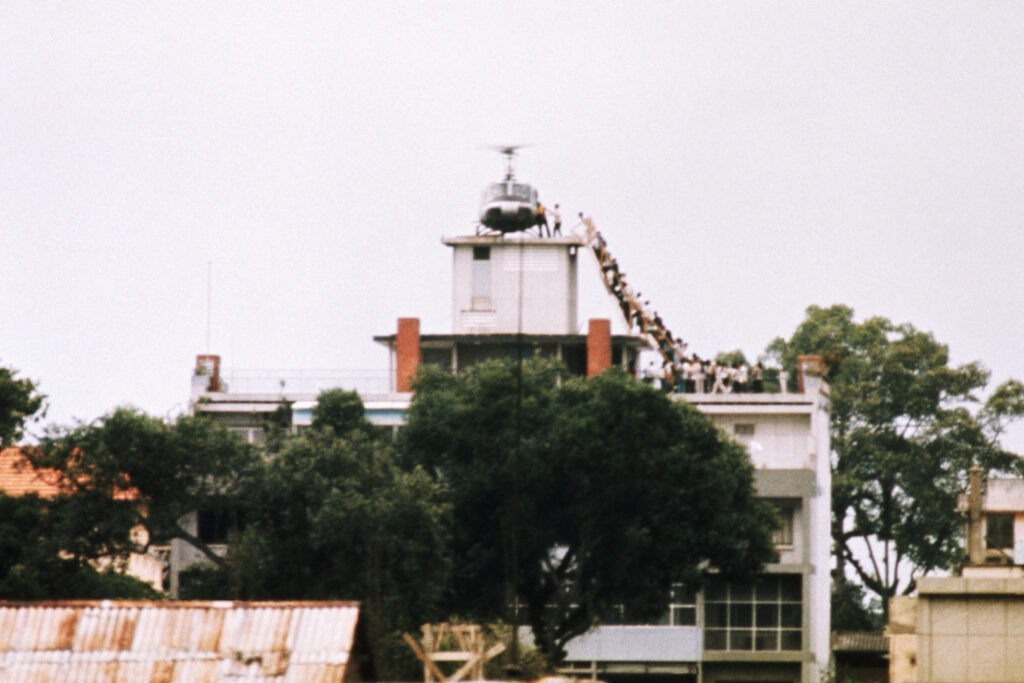
“I’m on… all the time,” she admits. As she was unveiling Ethel, she recalls, she had already started Last Days in Vietnam. A media person she invited to the Ethel screening mentioned he had recently seen a box of footage marked “April 1975.” Kennedy immediately offered to pay shipment costs to her home in California. When the man said he’d bring the box himself, she proposed paying for his plane ticket.
The footage turned out to be a “treasure trove,” Kennedy said. She used 12 minutes in the final cut of the 2014 film, an amazing amount from one source.
Last Days in Vietnam covers the scramble to rescue 7,000 Americans stranded in the aftermath of the conflict, as Saigon fell to the North Vietnamese. After the collapse of the airport, U.S. military helicopters ferried citizens from atop the embassy to a flotilla in the South China Sea. Ingenuitive South Vietnamese pilots began following their lead to evacuate their own families.
A clip from the film documents the South Vietnamese pilot of a huge Chinook copter loading a family, including a baby, into the craft, which is dangerously low on fuel, and flying to the flotilla. The helicopter is too large to land on the boat, so the desperate pilot hovers over it and drops the baby — who is miraculously caught! The mother jumps out; she too is caught. The copter hangs in the air, inches from the roiling swells, while the pilot, it was learned later, sheds his flight suit. The copter rolls to the right and into the water, as the pilot steps out the left-side door and plunges into the waves. A tension-filled pause, and a head pops above the water line and heads toward the boat.
Kennedy uses the drama much as the director of a fictional film would, organized into three acts, beginning, middle, and end. She often partners on the documentaries with her writer-husband, Mark Bailey.
“These films take a lot of energy, and I really need to be passionate about it and feel connected to the story in some deep way,” she says, “— and feel that I have something to learn and that in making this film, I hope other people will gain some knowledge and depth of understanding.”
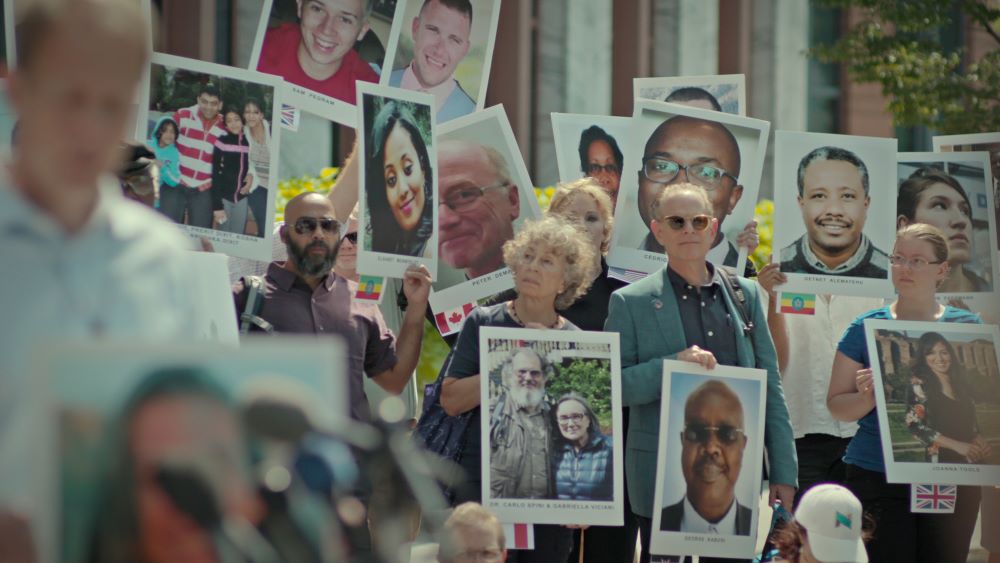
Kennedy intended 2022’s DOWNFALL: The Case Against Boeing for a specific purpose: to keep anything like that from happening ever again. The twin crashes of the 737 MAX jets left 346 people dead. The documentary asserted that the Boeing model itself was “compromised and dangerous,” as Kennedy puts it, although the company blamed the pilots for two deadly crashes within a five-month time frame in 2018-19
A key interview — and a very difficult one — was the wife of one of the deceased pilots. Kennedy approached her through a family member and talked to the woman’s attorney. Several phone calls followed before she agreed to an interview. The widow watched the documentary for the first time at its premiere at the 2022 Sundance Film Festival, and attended a Zoom Q&A afterward. Kennedy was relieved and gratified that she agreed to host upcoming screenings.
Kennedy emphasizes it’s important that people “who lost so much” be a part of the filmmaking process, and also be protected from further trauma. Distributors like Netflix are increasingly aware of the emotional risks of recounting and reliving those traumas — arranging for therapists to be present on-set for support, for example.
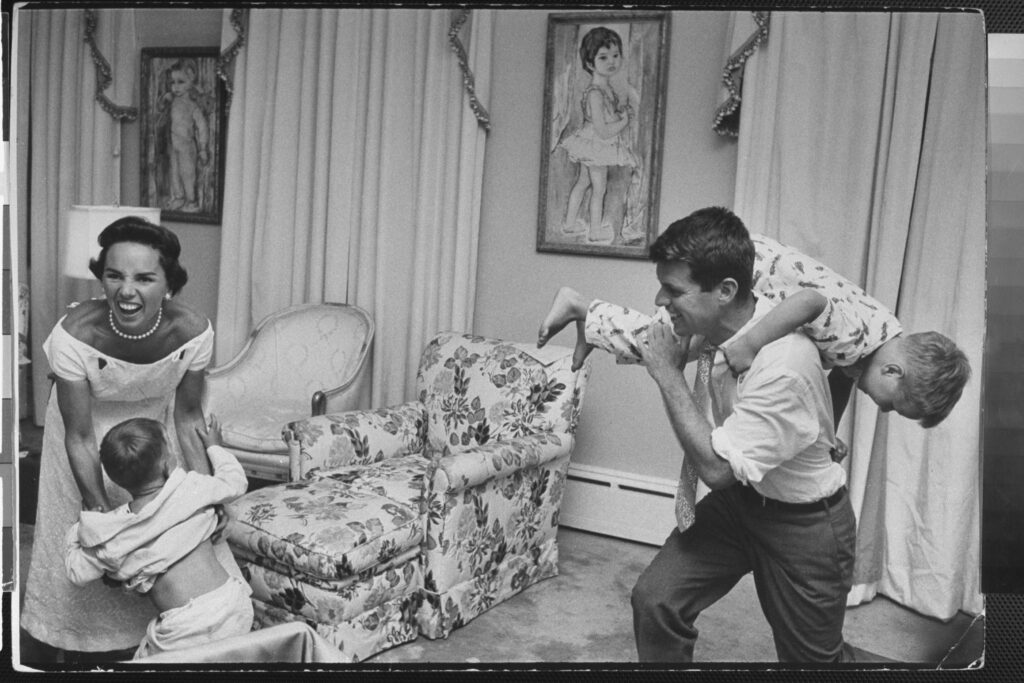
To be fair, not all of Kennedy’s documentaries have been so serious. She took the story of legendary surfer Laird Hamilton (Take Every Wave: The Life of Laird Hamilton) to the 2017 Sundance Film Festival, after all.
And 2012’s Ethel, while an in-depth look at the remarkable woman and mother of the couple’s 11 children, did not purport to be an objective study. Their youngest daughter, Rory, born six months after her father’s death, deliberately decided to narrow the focus only to family members for the film. And she chose to narrate.
One scene, in which she interviews brother Max (the ninth child), subtly pokes fun at the Irish Catholic Kennedys’ famously large families. “Wait a minute,” says Max, “Mom didn’t have 11 kids; she had 10.” He starts at the top, ticking off names under his breath, ending with Douglas.
She points to herself. “Rory,” she says, without cracking a smile.
To watch the entire Sundance Collab event, click here. Check out the course Documentary Filmmaking: Developing Your Story here; applications are due March 12.




